Regardless of the industry, you work in, if you spend hours in front of the computer, you need to create an ergonomic-friendly space. This is vital in ensuring optimum health, comfort, and productivity.
When you spend hours in a sedentary position every day, even small movements such as moving your wrist to control the mouse can have a negative impact on your health in the long term. This is mainly because such movements are sustained frequently.
Luckily, an ergonomic workstation and office space can be designed through simple steps. In this guide, we will discuss all the reasons why an ergonomic office space is crucial for your health and productivity. We will also give you ergonomic design tips to help you get started.
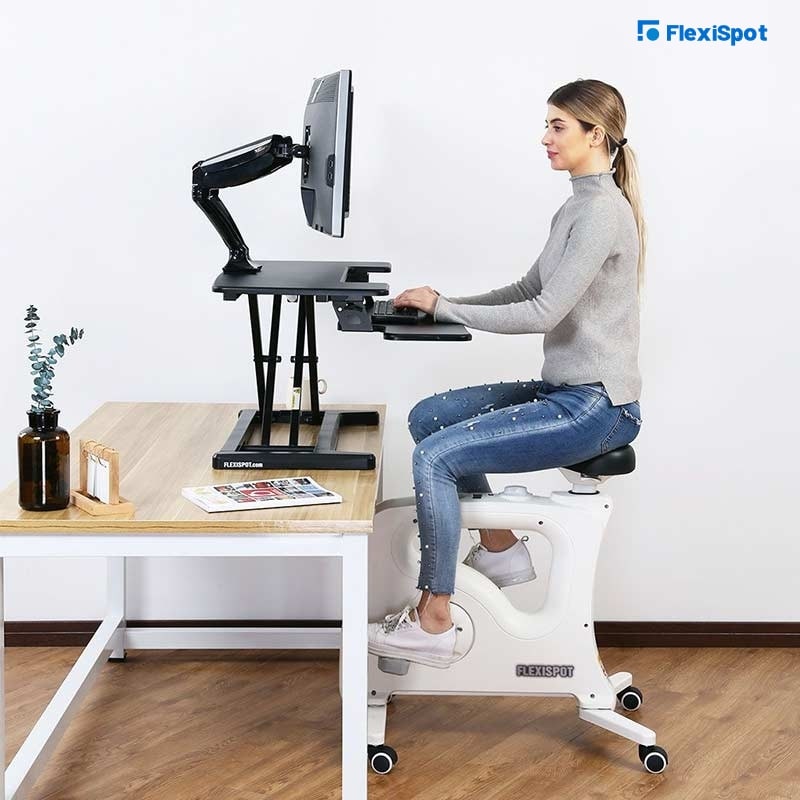
What Is Ergonomics, and Why is It Important?
Employees and employers should all pay attention to ergonomics. The main concept behind ergonomics is to have a working space that promotes good health, comfort, optimal efficiency, and productivity. Ergonomics literally refers to the study of individuals’ relationship with the tools they use, including electronic devices, computers, and more.
Many people assume that ergonomics simply involves changing up the furniture and tools, but it involves more than that. You have to create a comfortable ergonomics work environment, so it can even include changes in the worker’s routines.
Hence, ergonomics involves looking at the design of the workplace and altering it to enhance the user’s experience. People cannot work when they are in discomfort or pain. They will simply not be able to concentrate or be as productive. However, ergonomics aims to counter all of this and enhance their tools and environment to make them feel better, comfortable, happier, and more productive.
When you are sitting for long hours and performing repetitive tasks, it is common to end up with strains and soreness in the body. This is why people working in an office are no strangers to tech neck, backaches, headaches, repetitive strain injuries, carpal tunnel, or musculoskeletal disorders. This is why ergonomics is a key component that ensures good physical health.
Muscle aches are one of the most common issues individuals face. In fact, research shows that the second most common reason behind not showing up to work is due to muscle aches. The first reason is the common cold. Therefore, employers need to understand that they will have more productive employees who are less likely to miss work when they enhance ergonomics.
The workplace needs to be equipped with the right furniture and design to promote ergonomics to enhance the well-being of the workers. Besides this, workers should practice habits such as stretching and maintaining good posture to improve ergonomics.
Ergonomic Design Tips
By now, you understand that poor ergonomic design in the workplace can be pretty detrimental to an employee's long-term health. Every individual's responsibility is to ensure that their workplace is comfortable and promotes productivity. This can be done through the use of ergonomics.
To understand how to create an ergonomic design in the workplace, you must first understand that a poor ergonomic work environment can impact four primary areas of the body. These are your head, neck, back, wrist, hands, and feet. Hence, you need to change your design into something that can reduce strain, injury, and soreness in these areas.
Here are some ergonomic design tips that can enhance the design of your home or work office and that focus on these aforementioned four areas of the body:

1. Improve the Lighting in Your Office
Regardless of whether you use energy-efficient bulbs or cheap ones, you need to ensure ergonomic lighting in your office. The workspace should be well lit, and there should be the perfect amount of light.
There should not be too much light to cause glare, and the light should not be too less to force you to squint. Most ergonomic offices also incorporate plentiful natural lighting through windows because it also helps create a relaxing and calming environment.
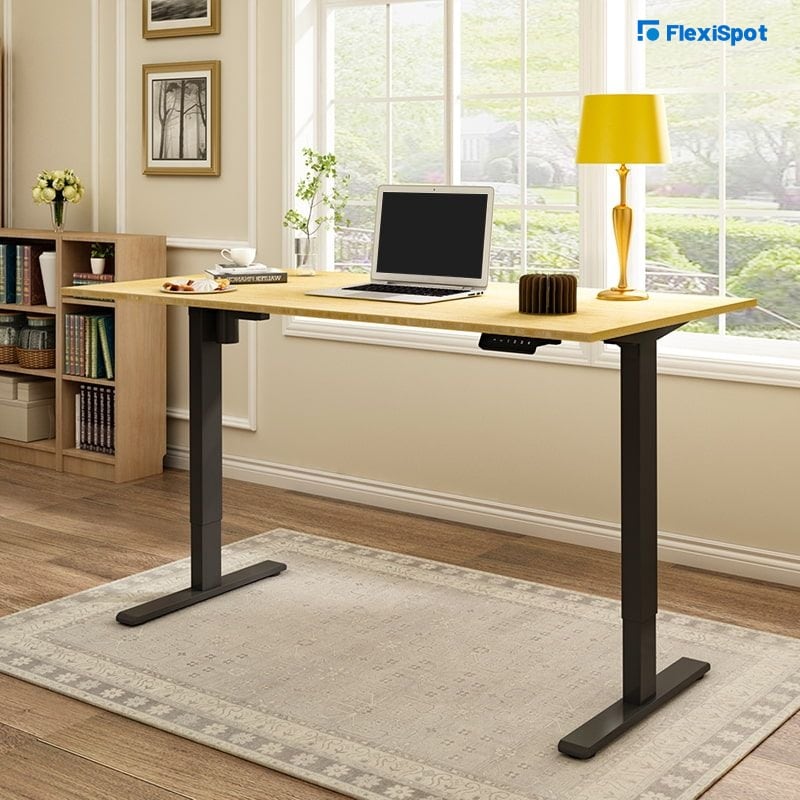
2. Get a Standard Standing Desk
Most people tend to sit in front of their work desks for hours, which is why back and neck problems become inevitable. All of this is typically due to sitting. Since employees have to work, the best solution is to have a standing desk from FlexiSpot.
You can easily adjust the height of this desk if you want to alternate between sitting and standing. These desks are perfect for working while standing since you have sufficient space to place your keyboard and can even attend video conferences and meetings with it.
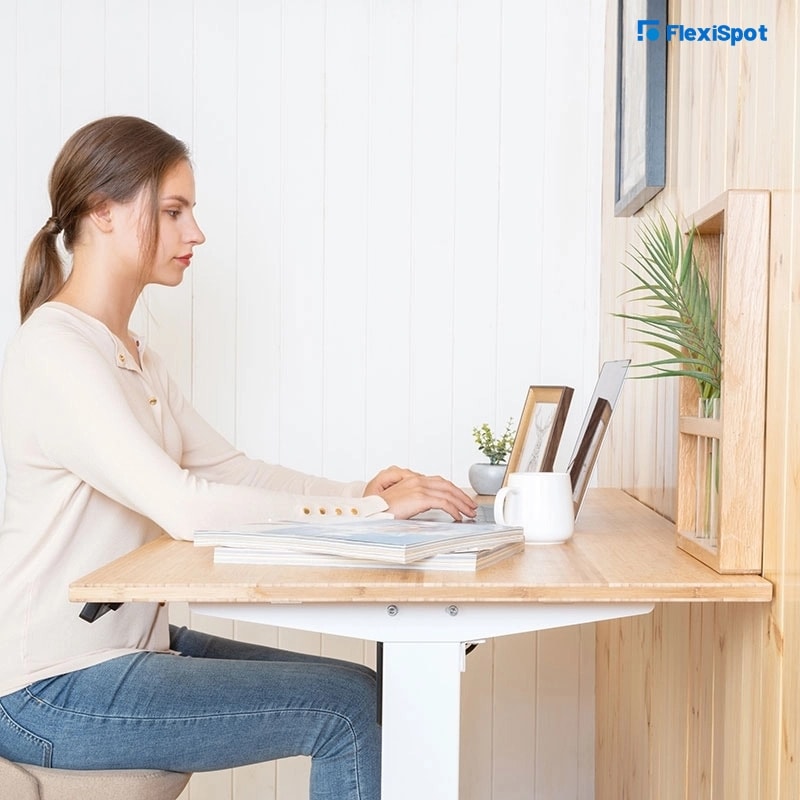
3. Maintain Good Posture
Bad posture is the leading problem faced by most employees because it leads to aches in the neck and back. Many people are unaware of their posture when they are leaning forward or hunching. However, all employees should be encouraged to make a conscious effort to maintain good posture at all times.
Additionally, when you get a standing desk from FlexiSpot, you can maintain a neutral posture by alternating between sitting and standing. This way, you will be less likely to have posture issues and aches.
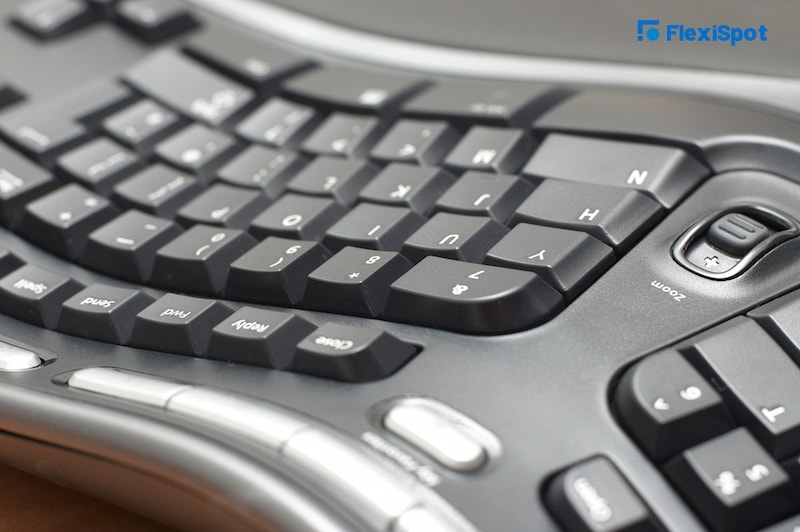
4. Get an Ergonomic Keyboard
Most keyboards force you to keep your hands extended and sit in a hunched position. This is not ergonomic-friendly since it will likely result in posture problems and aches. However, there are ergonomic keyboards designed to eliminate such issues since they relax your shoulders.
Moreover, an ergonomic keyboard lets you keep your wrists in a neutral position. They also have spaces in between the keys. All of this will also prevent fatigue from arising.
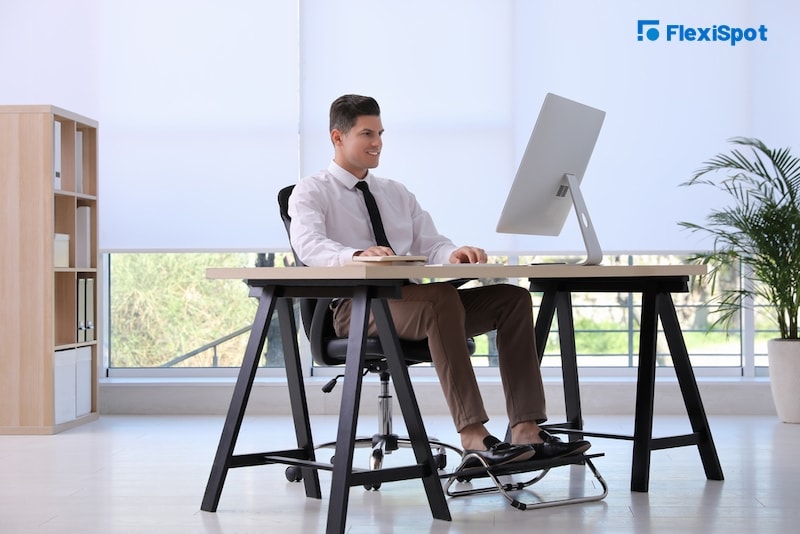
5. Use a Footrest
Individuals who are short should opt for a footrest in order to enhance the ergonomic design of their office. This is because they must not keep their legs suspended for hours. The footrest will help prop up the feet and keep them in one spot. This will also aid relaxation because you can easily move your chair around.
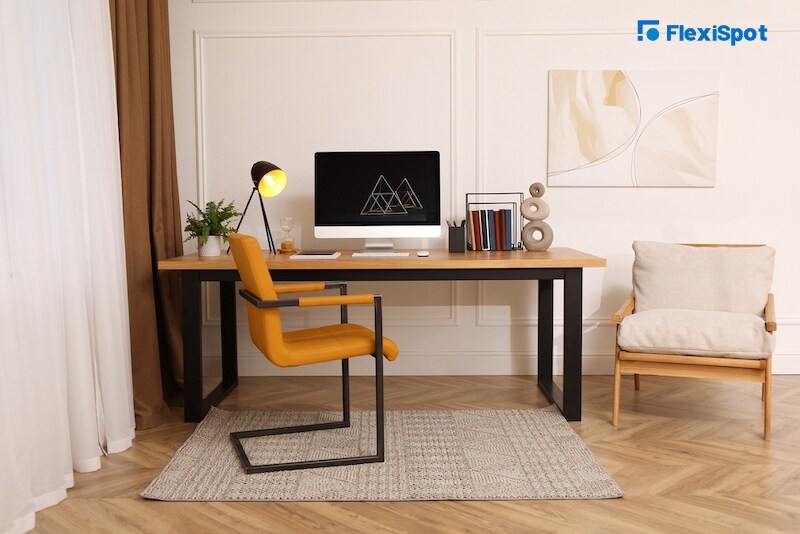
6. Add Rugs to Your Office Space
The easiest ergonomic design tip we can give you is to adorn your office with rugs. They prevent your chair from accidentally sliding around, which is a problem for heavy and lightweight individuals. Excessive sliding can cause a lot of discomfort.
They will not just stop your chair from sliding but will also enhance the look of your office.
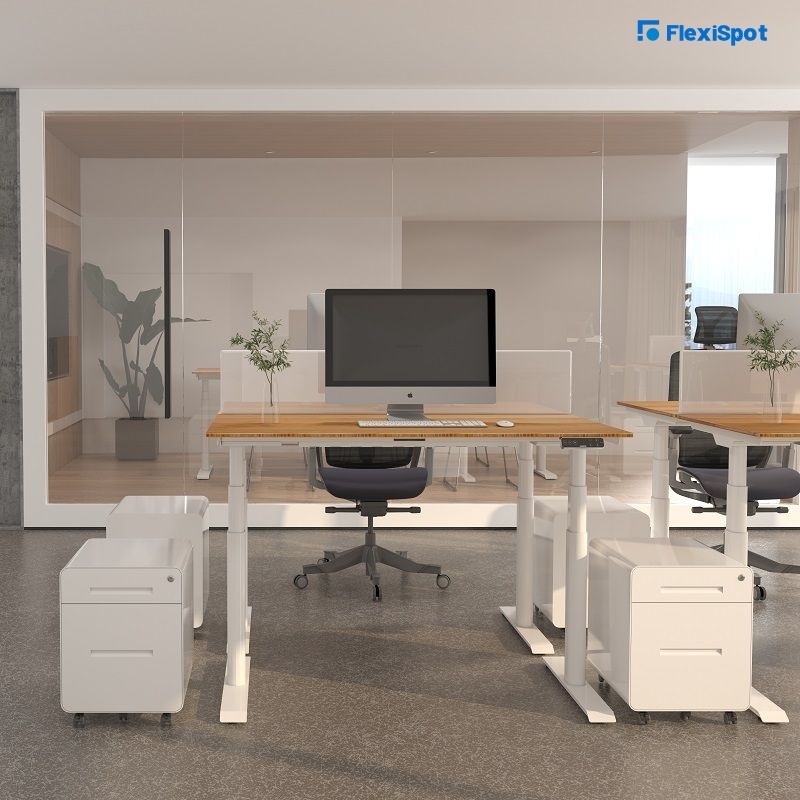
7. Get Rid of Unnecessary Clutter
Your office space should have plenty of space and be free from clutter. Too many things on the desk, including stationary and devices, can make it difficult for an employee to focus on tasks. Moreover, less space in the office will also make employees feel claustrophobic.
Less clutter will give them sufficient space to move around, feel comfortable, and enhance productivity.
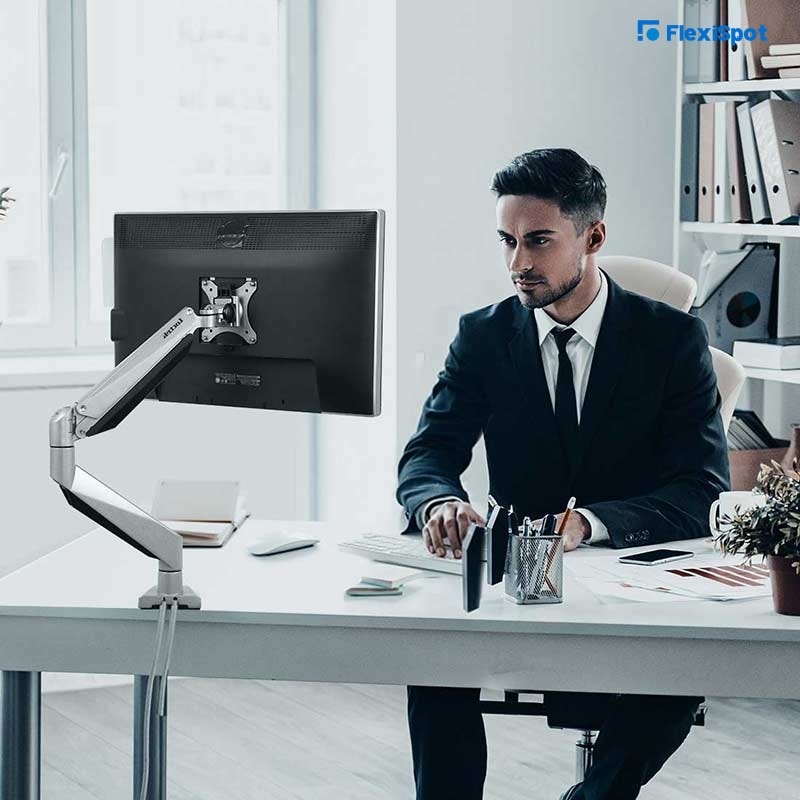
8. Keep Monitor at a Leveled Height
In order to prevent strain on your eyes, neck, and back, you should ensure that you and all other employees have their monitors set at a leveled height. You must make sure that you can clearly see the screen from eye level without having to bend your neck.
Moreover, the screen should also be an arm's length away from you. You can raise your monitor with a monitor arm, and if you have a laptop, you can use the standing desk from FlexiSpot to adjust the screen's height.
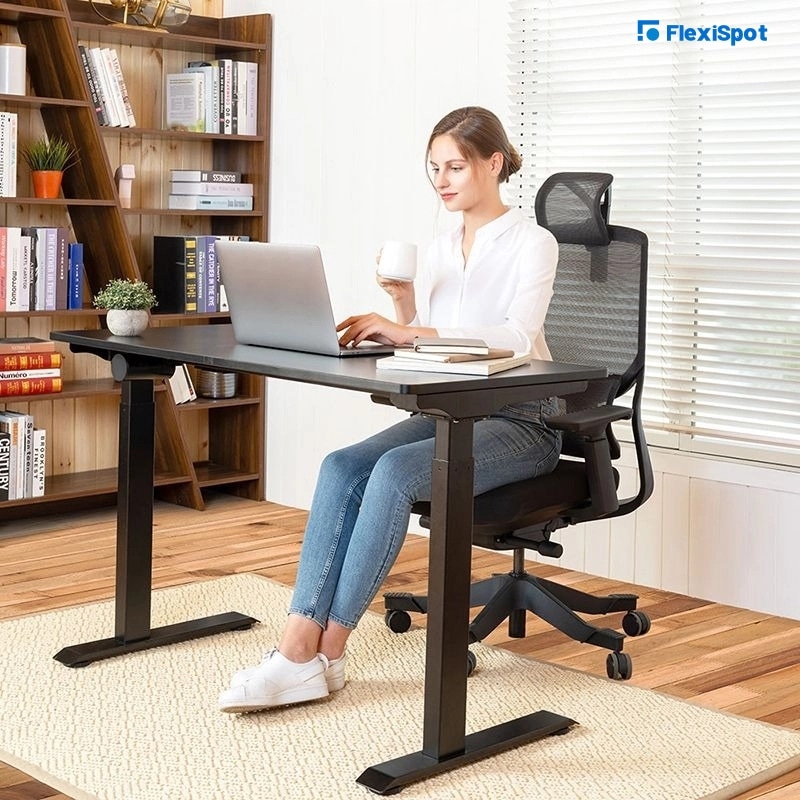
9. Get a Comfortable Chair
Ideally, there should be no gaps between your spine and the chair. Hence, your ergonomic office should contain a comfortable chair that supports your upper and lower back and keeps it cushioned. If you spend hours sitting and working, you must invest in a good office chair with sufficient lumbar support.
You can check out the collection of the best ergonomic office chairs at FlexiSpot. If you cannot invest in a chair, consider getting a cushion instead.
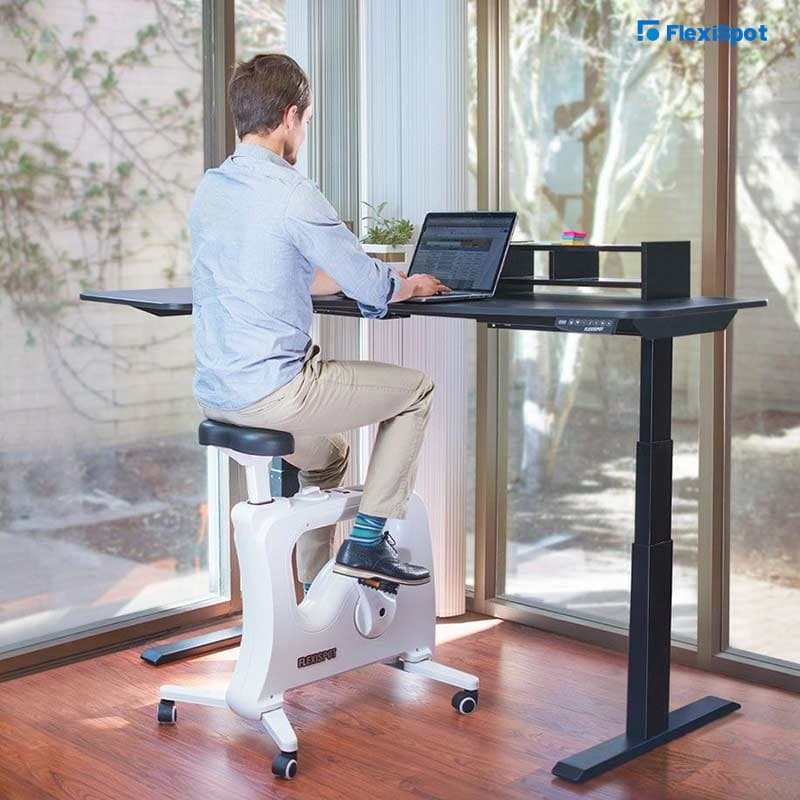
10. Increase Movement throughout the Day
Although this may not exactly be an ergonomic design tip, it is important for your overall health and productivity. Sitting for hours with little to no movement throughout the day is dangerous. No matter if you have a comfortable chair, if you don’t incorporate movement into your day, you will still experience problems and aches.
This is why you should take a break at least once an hour to get up and walk, stretch, or even exercise. Alternatively, you can also get a standing desk from FlexiSpot since it allows you to stand while working simultaneously.
Final Words
An ergonomic office is vital if you want to ensure the good long-term health of employees. It will enhance efficiency and health at the same time. Now that you know the essential ergonomic design tips, it is time to start shopping for the necessary tools and furniture.
Visit FlexiSpot’s website to discover the best variety of high-quality chairs, standing desks, monitor arms, and so much more that will help you create the perfect ergonomic office!